You never know when an opportunity will turn up. One that will have consequences for your photojournalism career that at the time you cannot even begin to imagine. Bizarrely the opportunity might only present itself as a result of someone else's poor luck.
But when you get that phone call or e-mail, are you be flexible enough to take advantage of the situation?
Back in 1998 one of the regular writers for DIVER, a journalist of some repute, slipped and hurt his back. This was not good news on two fronts, one - he'd hurt his back, very painful, and two - he was about to leave the UK to cover the World Freediving Competition in Sardinia for DIVER magazine. With just two days before its start, they had no-one who could go.
On a normal Wednesday afternoon the editor called me asking me if I was busy the next week, "next week? Actually, yes I am, I have several commitments," I answered. Completely the wrong answer.
"Never mind," said the editor, "there's this assignment we need to find a replacement for - I thought it would be something you'd like." At this point I knew I'd given him the wrong answer and I felt frustrated with myself. Editors want flexible go-getting individuals on their books, and despite being the second choice (or maybe others had said no before me?) the correct answer should have been, "next week? No problem, what's the job?"
This was the first time I'd been offered an assignment and I was turning it down! Fortunately the editor told me what the assignment was, and with dreams of being in a real life, The Big Blue, I promised him I would call back in an hour with a yes or no.
Friday morning at 0400hrs I was checking in at Gatwick for one of the best assignments I've ever had. 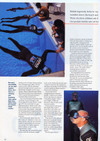 This was the first time I met with 'real' journalists, ones who had travelled from all over the world to cover this event. It was quite daunting, but as far as they were concerned, I was the representative of a very prestigious magazine and so, I was part of their 'gang.'
This was the first time I met with 'real' journalists, ones who had travelled from all over the world to cover this event. It was quite daunting, but as far as they were concerned, I was the representative of a very prestigious magazine and so, I was part of their 'gang.'
I listened to the way they spoke and to the ideas they bounced off each other. This was where I discovered the greatest skill I believe a photojournalist needs, the ability to communicate effectively - to build up a rapport, to listen and to ask intelligent questions. At the beginning of the week I felt like I should have been in one of those 'faking it' type programmes, by the end of the week, I'd seen and heard enough to know that I had a great story - I was as much a photojournalist as they were. 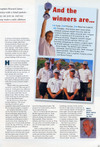
All of this led to the publication of a seven page story about the event. My original brief had been to do a one page (at the most) news feature about the British team, however, the editor liked what he heard 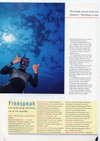 so much, he presented me with the opportunity to write it up as a full feature.
so much, he presented me with the opportunity to write it up as a full feature.
I didn't know it at the time, but this article would open some incredible doors for me over the next year or two.
Skills I developed that week?
Flexibility - always find some way of saying 'yes' to the editor
Confidence - other photojournalists might try and phase you with their apparent knowledge of the business, but when you scratch under the surface, they're not 'all that.'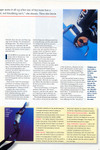
Communication - listen, watch, build up rapport and ask good questions. When I returned I had the BBC calling me for further information on the event. Can you believe that? I had information they needed for a documentary! Incidentally - they were the only ones who blanked me out that week, which is why I fed them duff information coated in a small amount of truth, and they used it on the programme!
Pushiness - You discover what elbows are for in the quest for good pictures!
In a future post I'll explain how fate, flexibility and a smattering of luck led me to further assignments, 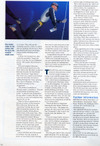 all as a result of this one.
all as a result of this one.
I've no idea who slipped and hurt their back - but thank you anyway, and I hope the back got better.
Keep writing...
Brendan
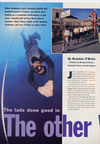
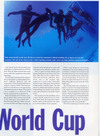
Recent Comments